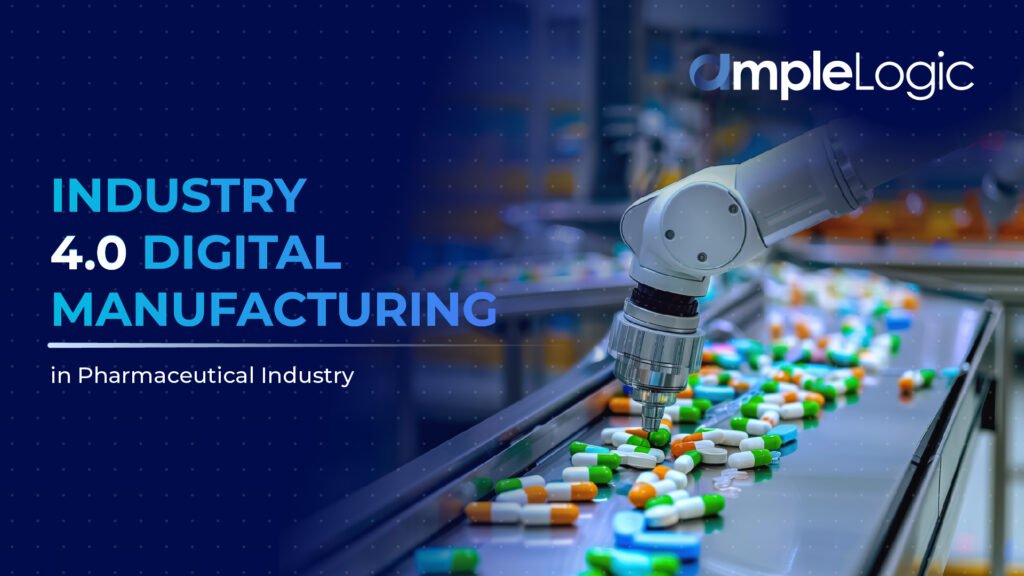In the dynamic and highly regulated world of pharmaceutical manufacturing, integration of advanced technology is essential to excel in key business processes, ensure standard product quality and meet regulatory standards. One such technological advancement that has been continuously aiding businesses to meet compliances and quality standards is a Manufacturing Execution Systems (MES) for detailed batch traceability. MES provides real-time monitoring and control of the production process, ensuring quality, compliance, and efficiency. There are quite a few impressive and efficient Pharma MES systems in the market. It is however essential to look into the benefits and features of a batch tracking system to make the accurate choice! In this article, let’s delve into the transformative impact of Pharma MES with detailed and enhanced batch record tracking for pharma manufacturing processes.
So, what does Batch Record Tracking with Pharma MES mean?
Batch record tracking with Pharma MES involves the digital management of all documentation and data associated with the production of pharmaceutical batches. Instead of relying on cumbersome paper-based records, electronic batch records (EBRs) are created and maintained within the MES. These EBRs contain detailed instructions, procedures, specifications, and forms required for each step of the manufacturing process.
Key Components and Features of Batch Record Tracking
Electronic Batch Records (EBRs): EBRs serve as the digital counterpart to traditional paper batch records. They provide a centralized platform for storing and managing all relevant documentation, including manufacturing instructions, process parameters, test results, and quality control records.
Real-Time Data Integration: Pharma MES seamlessly integrates with various manufacturing equipment, quality control instruments, and environmental monitoring systems to capture real-time data during production. This includes data such as temperature, pressure, pH levels, and product yields.
Process Execution and Monitoring: Operators follow the instructions outlined in the EBRs to execute each step of the manufacturing process. As tasks are completed, data is recorded directly into the MES, enabling real-time monitoring of production activities, equipment status, and environmental conditions.

Quality Assurance and Compliance: Pharma MES enforces compliance with regulatory requirements by ensuring that all manufacturing processes adhere to predefined standards and protocols. It facilitates electronic signatures and approvals to verify the completion of critical tasks and supports regulatory audits and inspections.
Data Analysis and Reporting: The MES collects vast amounts of data throughout the production process, which can be analyzed to identify trends, optimize processes, and ensure product quality. Comprehensive reporting capabilities enable stakeholders to gain insights into manufacturing performance and compliance metrics.
Traceability and Audit Trails: Pharma MES maintains detailed audit trails of all actions taken during production, providing full traceability of each batch from raw materials to finished product. This facilitates compliance with regulatory requirements and enables quick and efficient investigations in the event of deviations or recalls.
Benefits of Batch Record Tracking in Pharma
Batch Traceability in Pharmaceutical Manufacturing offers unparalleled visibility into detailed drug manufacturing processes. Here’s how it revolutionizes pharmaceutical manufacturing ensuring excellent product quality and meeting compliances.
Real-Time Data Collection and Monitoring
Pharma MES software provides continuous, real-time data collection from various stages of the manufacturing process. Sensors and IoT devices collect data on parameters such as temperature, pressure, and humidity, crucial for maintaining product quality in pharmaceuticals. This data is instantly available to operators and managers, allowing for immediate adjustments and interventions when necessary.
Enhanced Traceability and Compliance
Pharmaceutical manufacturing is heavily regulated, with stringent requirements for traceability and documentation. MES ensures complete traceability of each batch, from raw materials to distribution. Every action and change in the process is recorded, providing a detailed audit trail that is essential for regulatory compliance and quality assurance.

Optimized Production Workflow
MES optimizes the workflow by providing real-time visibility into production status, bottlenecks, and resource utilization. Live tracking helps in identifying inefficiencies and optimizing the use of equipment and labour. This leads to reduced downtime, faster production cycles, and increased overall efficiency.
Quality Control and Assurance
Live tracking enables proactive quality control by monitoring critical quality attributes (CQAs) and critical process parameters (CPPs) in real-time. MES can trigger alerts and corrective actions if any deviations are detected, ensuring that products meet the stringent quality standards required in the pharmaceutical industry.
Inventory and Supply Chain Management
MES provides detailed, real-time information on inventory levels, usage rates, and stock movements. This helps in maintaining optimal inventory levels, reducing waste, and ensuring timely availability of raw materials and components. Improved inventory management also enhances the coordination with suppliers and reduces the risk of stockouts or overstocking.
Improved Decision-Making
With comprehensive, real-time data at their fingertips, managers can make informed decisions quickly. MES provides detailed analytics and reporting tools that help in identifying trends, forecasting demands, and making strategic decisions to improve production efficiency and product quality.
AmpleLogic MES for Batch Traceability in Pharmaceutical Manufacturing
AmpleLogic provides enhanced batch traceability features to keep your business processes on track, streamlining processes effectively and helping peak precision. Here is an elaborate insight into the befits of batch record tracking with AmpleLogic Pharma eBMR software.
- Helps find issues or blockages and act likewise to lower batch manufacturing time.
- Get insight on availability of various equipment and resources maximising utilization.
- Live Quality Control checks help in improving the quality of products and take proper action immediately if anything goes wrong.
- Trace used materials & equipment’s to find out the cause for various quality elements.
- Maximise occupancy of various Equipment and Areas, also adjust the prioritised batches in between free time.
- Live data ensures that Managers take prompt decisions and ensure efficient process flow.
- Reduces rework and helps save time, raw materials, equipment, wear and tear etc.
- Real time data helps create accurate reports.
- Ensures on-time delivery.
- Quality Assurance is strengthened, and customer’s trust is gained
- In the end MES can collect vast amount of data in various aspects and that can be used to generate various trends, understand the drawbacks and much more.
The Future of Pharma MES Software
As the pharmaceutical industry continues to evolve, the role of MES in batch record tracking will become even more critical. Emerging technologies such as artificial intelligence (AI), machine learning (ML), and blockchain are expected to integrate with MES, providing even more sophisticated tools for real-time monitoring, predictive maintenance, and enhanced batch traceability.
The pharmaceutical industry is on the cusp of a significant transformation driven by the integration of MES and other advanced technologies. Detailed batch tracking system not only ensures compliance and quality, but also drives efficiency and innovation, setting the stage for the next generation of pharmaceutical manufacturing.
In conclusion, the implementation of batch tracking system in pharma manufacturing is revolutionizing the way pharmaceutical companies operate, ensuring that they can meet the high standards required for quality, compliance, and efficiency. As technology continues to advance, the capabilities of batch tracking system will expand, further cementing its role as an indispensable tool in the pharmaceutical manufacturing landscape.





















